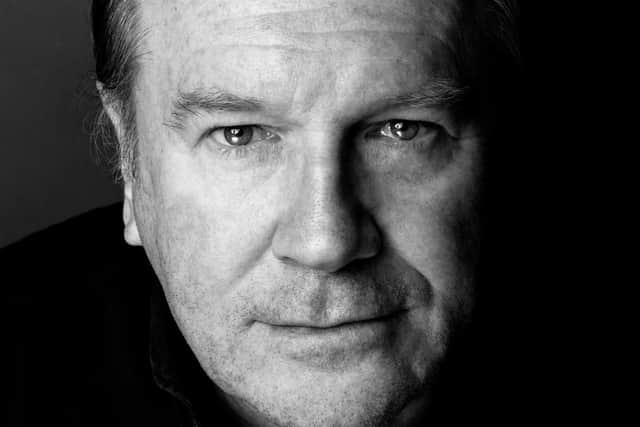Arts review of 2020: Allan Massie on the year in books


As only the second Scot to win the Booker Prize, Douglas Stuart deserves to top the bill in any Books of the Year piece. Shuggie Bain is a harsh picture of post-industrial Glasgow. Often depressing, sometimes painful, it is redeemed by the tenderness with which Stuart develops the relationship between Shuggie, his effeminate boy hero, and the alcoholic mother he loves, guards and cares for.
Most prizes go to writers in the early or middle stages of their career. Some peak early and fall away. Others keep going and this year there have been some excellent books by established authors, some still fashionable, others less so.
Advertisement
Hide AdHilary Mantel clearly comes in the first category. One may think her too indulgent of her hero, Thomas Cromwell, in his years of power the most hated and feared man in England, but The Mirror and the Light which concludes her trilogy is as gripping and remarkable as its predecessors.


Robert Harris is still in fashion, recognized as the master story-teller of our time. V-2, set in the last months of the war and told from both the German and British perspective, is gripping from the first few pages, when rockets land on London, to its bittersweet ironic ending.
The doyen of Irish novelists, John Banville, turned to crime some years ago, using the nom-de-plume Benjamin Black. Snow is an atmospheric murder novel published under his own name. The very nasty murder of a priest in a country house belonging to a declining Protestant Ascendancy family opens the door to further horrors. This is a crime novel which is also a social novel.
Still with crime JK Rowling, writing as Robert Galbraith, in the latest of her Cormoran Strike novels, breathes life into the coldest of cold cases as Strike and his partner Robin are hired to investigate the disappearance of a woman doctor 40 years previously. It is slow and meticulous, utterly absorbing, just the novel for the dead days between Christmas and the New Year.
The disappearance of an Iranian physicist temporarily doing research in Oxford is the central event in Nicholas Shakespeare’s novel The Sandpit. The great charm of this elegant novel is in its dual-time evocation of Oxford to which the main character, who befriends the physicist, has returned after 30 years in Latin America, with his young son who attends his own old Prep School, much as it was in many ways, though the clientele is greatly changed.


Film-making is at the heart of two delightful novels, William Boyd’s Trio and Jonathan Coe’s Mr Wilder & Me, both the work of craftsmen who know just what they are doing. Trio is, I think, Boyd’s best novel for some time, and, since all his novels are good, this is high praise. Coe’s book is as charming as Wilder’s best films, comic with an undertone of sadness. Both authors write with the awareness that people read novels for pleasure, not from duty.
Advertisement
Hide AdThe same might be said of Sebastian Barry. A Thousand Moons is a sequel to Days Without End and an extraordinary recreation of the post-bellum American South.
In non-fiction nothing has given me as much pleasure as Patrick Marnham’s War in the Shadows. Marnham had already written the biography of the French Resistance hero Jean Moulin, mysteriously betrayed to the Nazis and murdered. The subtitle of his new book is “Resistance, Deception and Betrayal in Occupied France”. Deception by British Intelligence led to the betrayal of a Resistance network and, by extension, of Moulin. It’s a murky story, carefully teased out. A grim subject alleviated by Marnham’s memory of time spent as a student with the family who belonged to the betrayed network.
Advertisement
Hide AdFinally, two novels from small publishers, both unlikely to be much reviewed. David Willington’s A Palestine Affair, set in the last months of the British Mandate, is unusual in being told from the point of view of the British Palestine Police, trying to keep the peace and be fair to both Arabs and Jews. Borderline by Jim Forbes is a contemporary crime novel set on the Anglo-Scottish Border, with a passage which harks back to the Battle of Otterburn. It makes good use of the complexities that may arise even today from the differences between Scots and English Law.


A message from the Editor:
Thank you for reading this story on our website. While I have your attention, I also have an important request to make of you.
The dramatic events of 2020 are having a major impact on many of our advertisers - and consequently the revenue we receive. We are now more reliant than ever on you taking out a digital subscription to support our journalism.
To subscribe to scotsman.com and enjoy unlimited access to Scottish news and information online and on our app, visit https://www.scotsman.com/subscriptions
Joy Yates, Editorial Director